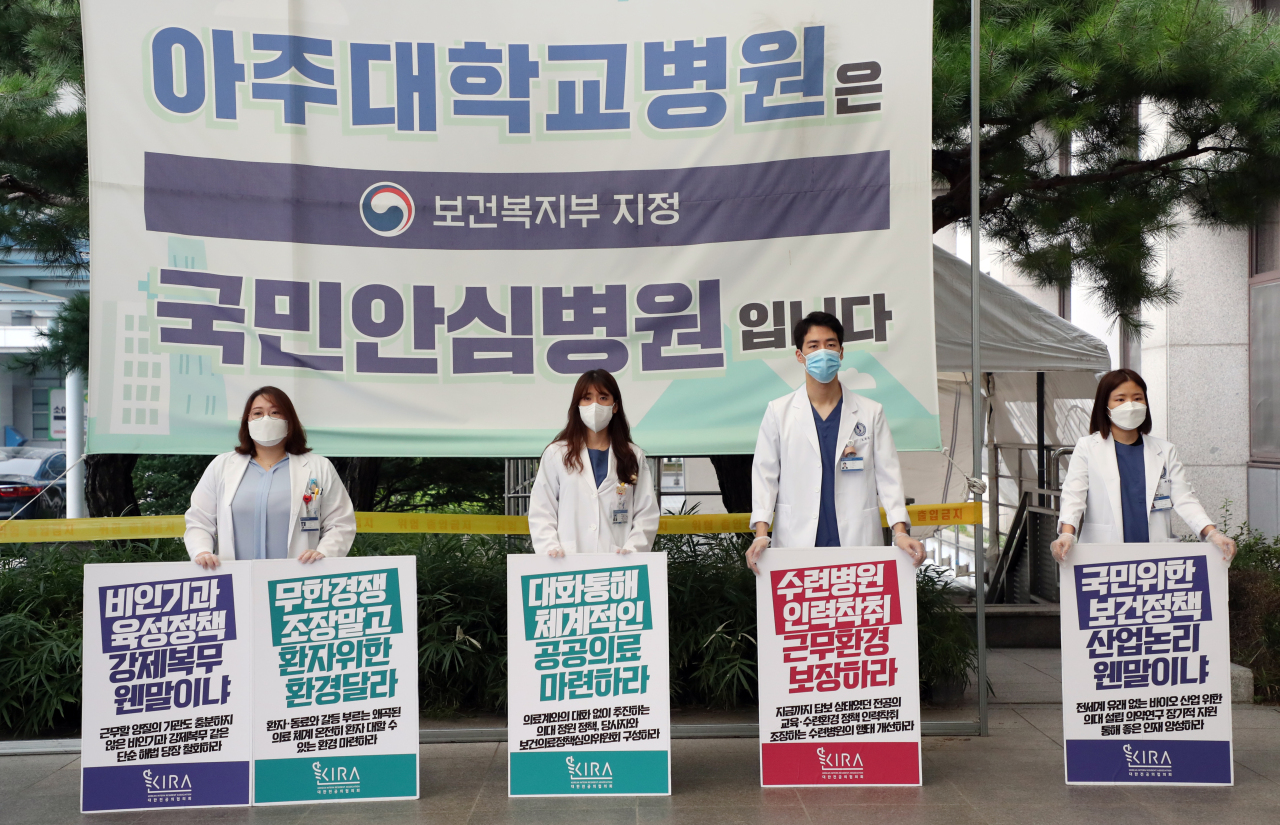 |
Trainees stage strike at Ajou University Hospital in Suwon, Aug. 21, 2020. (Yonhap) |
South Korean doctors on Saturday refused to stop their strike over health reform bills, even after the government announced it would put on hold the most contentious part of the plan until after the current coronavirus crisis.
In a public message Saturday, Health Minister Park Neung-hoo urged doctors to return to duty, saying the government is willing to discuss the contentious matter with the medical industry after the country contains a surge in virus cases in the greater capital region.
Members of the Korean Interns and Residents Association started their strike Friday with no end date and doctors of all grades are set to start theirs next week. If realized, the country would have the largest medical strike in years amid an upsurge in COVID-19 cases
“It (the government announcement) is all political rhetoric. Unless there is a ‘change,’ the strike goes on as scheduled,” a spokesman for the Korean Medical Association said.
The group made clear its stance of no compromise, demanding the plans be scrapped.
Health authorities warned that it may issue a formal order on striking doctors to return to work, shortly after expanding tougher social distancing rules nationwide to curb rising infections.
Noncompliant doctors could face a maximum 3-year prison term or have their licenses suspended. Worse, they could see their licenses revoked.
The strike calls for withdrawing the government’s health proposals, the most contested point of which is the plan to boost the number of medical students by 400 annually for 10 years. Upon graduation, some of these doctors have to work in rural areas that lack medical professionals for 10 years.
The government argued that health professionals are needed more than ever in those underprivileged regions for residents there to better cope with public health crises such as pandemics.
Doctors disagreed, saying more professionals would settle there if they get paid better than now and funding for reforms were reallocated to support trainees. They argue problems in the current medical service delivery system should be addressed, rather than just adding more doctors.
By Choi Si-young (
siyoungchoi@heraldcorp.com)





![[Exclusive] Hyundai Mobis eyes closer ties with BYD](http://res.heraldm.com/phpwas/restmb_idxmake.php?idx=644&simg=/content/image/2024/11/25/20241125050044_0.jpg)
![[Herald Review] 'Gangnam B-Side' combines social realism with masterful suspense, performance](http://res.heraldm.com/phpwas/restmb_idxmake.php?idx=644&simg=/content/image/2024/11/25/20241125050072_0.jpg)

